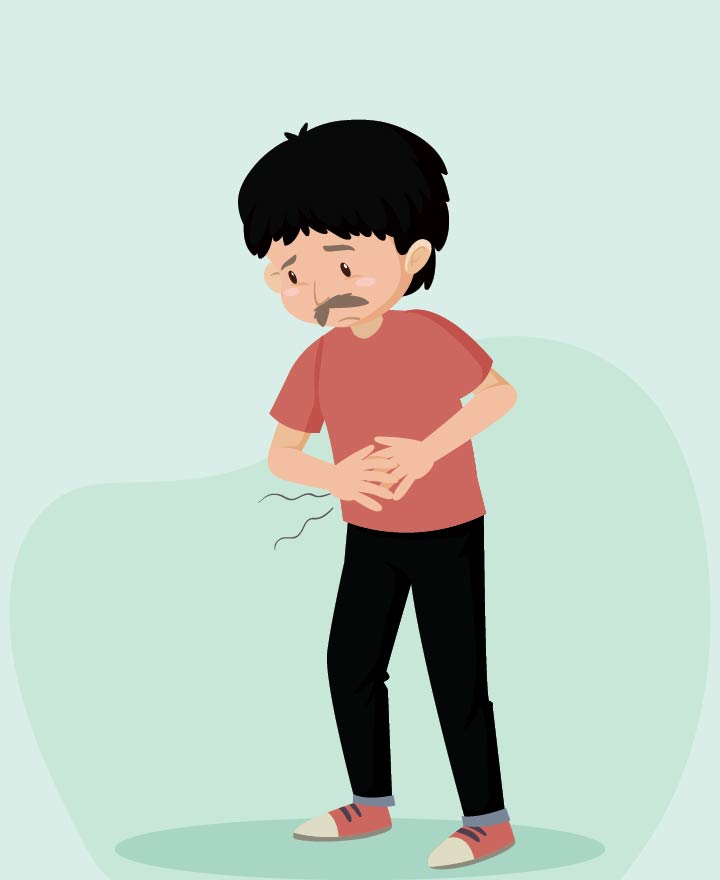

Side Effects of Pre-Workout Supplements
Pre-workout supplements are products designed to enhance workout performance and energy levels, and they have gained popularity among fitness enthusiasts in recent times. It’s important to note that while pre-workout supplements can be effective for some individuals, they’re not necessary for everyone as they can have various side effects. Read on to know more.
Adverse effects of Pre-Workout Supplements
Pre-workout supplements can have several side effects because of the ingredients they contain, especially if used in excess or if an individual has certain sensitivities. Some potential side effects include:
• Jitters and Anxiety:
Most pre-work supplements have high doses of caffeine. It decreases fatigue, ensuring you have constant energy to complete your exercises, but it can also cause jitteriness and anxiety. Consuming large amounts of caffeine can also lead to high blood pressure. It is advisable to consume caffeine according to your tolerance level or try caffeine-free supplements.
• Headache:
Citrulline, a widely used ingredient in pre-workout supplements, increases blood flow to muscles. Besides the muscles, your brain experiences changes in blood pressure. This usually results in headaches and migraines. Like with caffeine, you must also consume citrulline in low doses to avoid headaches.
• Digestive Distress:
The mix of ingredients in pre-workout supplements can create a host of stomach issues. Sodium bicarbonate is one component of supplements that can cause nausea, cramps, or diarrhoea. Magnesium, on the other hand, can trigger mild laxative effects. Mix enough water with the pre-workout supplement to counter these side effects.
• Cardiovascular Issues:
Certain pre-workout supplements contain stimulants that elevate blood pressure and heart rate. Its long-term usage can result in heart palpitations, arrhythmia, and even heart attacks in extreme cases. Take a good look at your supplement’s ingredient list to avoid a hospital trip later.
• Insomnia or Sleep Disturbances:
high caffeine content in the supplements can interfere with sleep patterns, leading to difficulty falling asleep or staying asleep.
• Dehydration:
Caffeine and other stimulants can act as diuretics, increasing urine production and potentially leading to dehydration if adequate fluid is not consumed.
Should you use pre-workout supplements?
The decision to take a pre-workout supplement is personal and depends on your health and preferences. It is not necessary to take supplements for your workout.
But if you choose to use a supplement, consulting a healthcare professional before starting is advisable, especially for individuals with underlying health conditions.
Alternatives And Ways To Reduce Side Effects
Both men's and women's workout supplements often have some side effects that can affect your health. Here are some tips you can follow to reduce the adverse effects:
• Always follow the dosage mentioned in the package. Mostly, side effects can be severe if you consume two or three times more than the recommended dosage of supplements a day.
• For best results, always take less than the recommended dosage. According to experts, you can also divide the quantity into many parts consumed throughout the day to mitigate the risks.
• If you are already prone to digestive issues and abdominal bloating, you should avoid pre-workout supplements that contain caffeine and sodium bicarbonate.
• The high caffeine content in pre-workout supplements may affect the sleeping routines of some people. To avoid this, you can take these supplements early in the day so that the effects of caffeine go away by the time you go to bed.
You can also opt for these alternatives to supplements:
• Skip store-bought pre-workout supplements and consume foods rich in natural energy-boosting ingredients, such as poultry, fish, and red meat.
• Instead of supplements, you can eat healthy snacks before a workout to give you enough stamina for your exercise. Choose snacks rich in complex carbohydrates and proteins for this purpose.
• Follow healthy diet practices such as the following:
- Finish your meals within 1 or 2 hours of working out.
- Drink lots of fluids before and during a workout.
- Always eat a balanced meal, preferably rich in proteins, after finishing your workout routine.
Conclusion
Pre-workout supplements are a quick and convenient way to get the most out of your workouts. If you do happen to experience any of the above side effects of pre-workout supplements or are considering using them, talk with your doctor first.
One of the important components of our overall wellness is also being financially secured. Healthcare emergencies can happen any time, but a good health insurance policy can protect you from such uncertain situations. To know more about Wellness and other health related tips, visit the wellness corner.
Source: health.clevelandclinic.org, texashealth.org, webmd.com
Disclaimer: This blog provides general information and discussions about health and related subjects. The information and other content provided in this blog, website or in any linked materials are not intended and should not be considered, or used as a substitute for, medical advice, diagnosis or treatment. Kindly contact your Doctor before starting a new medicine or health regime.
Related Articles
Drinking coffee before a workout- Benefits and risks
Can Too Much Protein Powder Be Harmful
Is Sleeping After a Workout Good or Bad
Ketogenic Diet - The Keto Diet Explained
Published on April 26, 2024
Last Updated on April 01, 2025














 Health Insurance
Health Insurance  Travel Insurance
Travel Insurance  Car Insurance
Car Insurance  Cyber Insurance
Cyber Insurance  Critical Illness Insurance
Critical Illness Insurance
 Pet Insurance
Pet Insurance
 Bike/Two Wheeler Insurance
Bike/Two Wheeler Insurance  Home Insurance
Home Insurance  Third Party Vehicle Ins.
Third Party Vehicle Ins.  Tractor Insurance
Tractor Insurance  Goods Carrying Vehicle Ins.
Goods Carrying Vehicle Ins.  Passenger Carrying Vehicle Ins.
Passenger Carrying Vehicle Ins.  Compulsory Personal Accident Insurance
Compulsory Personal Accident Insurance  Travel Insurance
Travel Insurance  Rural
Rural